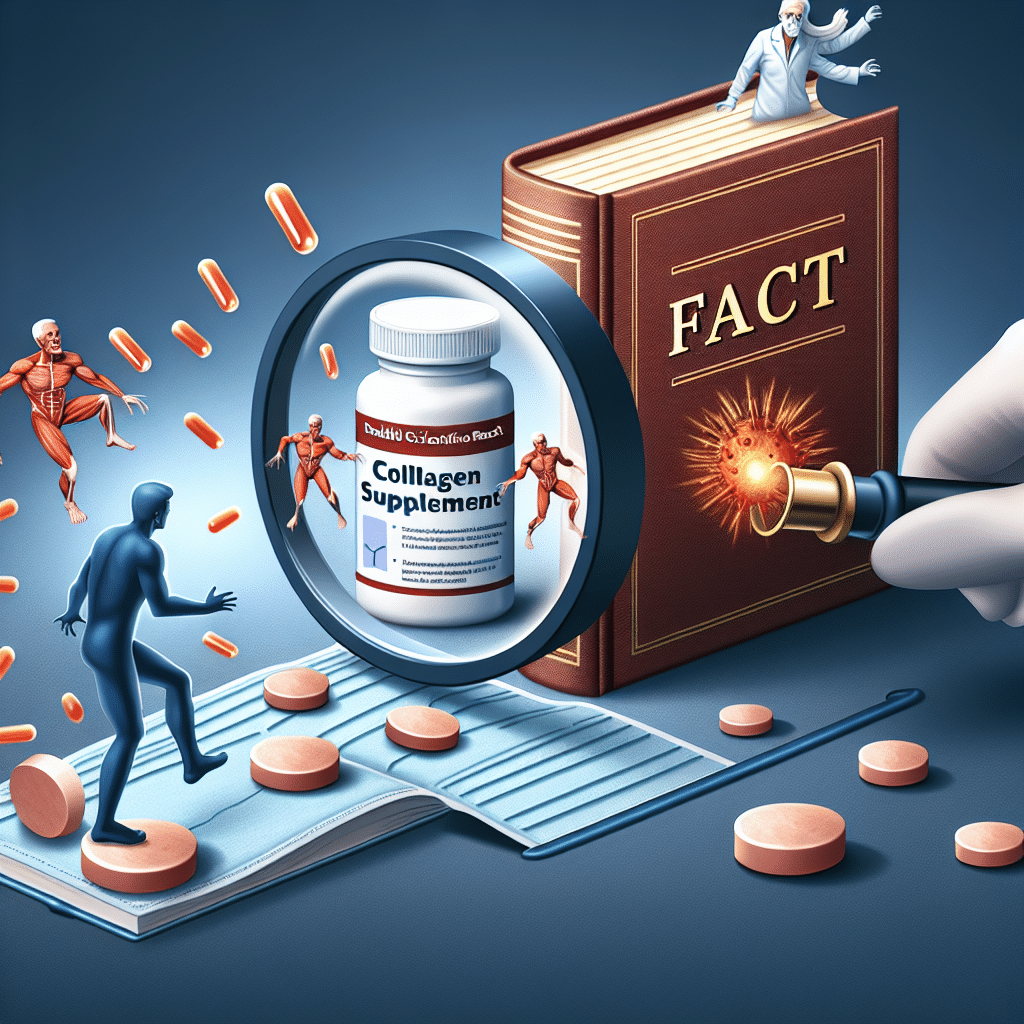Do Collagen Supplements Cause Breast Cancer? Separating Fact from Fear
-
Table of Contents
- Collagen Supplements and Breast Cancer: Understanding the Connection
- The Role of Collagen in the Body
- Popularity of Collagen Supplements
- Concerns About Collagen Supplements and Cancer
- Examining the Evidence: Collagen Supplements and Breast Cancer Risk
- Case Studies and Clinical Trials
- Expert Opinions and Recommendations
- Precautions and Safe Use of Collagen Supplements
- Conclusion: Balancing Benefits and Risks
- ETChem: Your Trusted Source for High-Quality Protein Products
Collagen Supplements and Breast Cancer: Understanding the Connection

Collagen supplements have become increasingly popular in recent years, touted for their potential benefits in skin health, joint function, and overall wellness. However, with the rise in their consumption, concerns have emerged regarding their safety and potential links to health issues, including breast cancer. This article aims to dissect the available evidence to separate fact from fear when it comes to collagen supplements and their association with breast cancer.
The Role of Collagen in the Body
Before delving into the relationship between collagen supplements and breast cancer, it’s essential to understand what collagen is and its role in the body. Collagen is the most abundant protein in the human body, providing structure to skin, bones, tendons, and other tissues. It’s crucial for maintaining skin elasticity, joint mobility, and the integrity of various bodily structures.
Popularity of Collagen Supplements
Collagen supplements typically come from animal sources, such as bovine (cow), porcine (pig), chicken, or marine (fish) collagen. They are consumed in various forms, including powders, capsules, and liquids, with the aim of boosting the body’s collagen levels, which naturally decrease with age.
Concerns About Collagen Supplements and Cancer
The concerns about collagen supplements potentially causing breast cancer stem from several factors. These include the presence of hormones or harmful substances in animal-derived products, the impact of high levels of certain amino acids on cancer cell growth, and the potential for contaminants in supplements.
Examining the Evidence: Collagen Supplements and Breast Cancer Risk
When it comes to the relationship between collagen supplements and breast cancer, the scientific evidence is not conclusive. Research in this area is limited, and most studies have focused on the effects of dietary collagen or collagen peptides on health, rather than the direct link to breast cancer.
- Animal-Derived Ingredients: Some fear that animal-derived collagen supplements could contain hormones or other substances that might influence cancer risk. However, reputable manufacturers ensure their products are purified and free from these contaminants.
- Amino Acid Composition: Collagen is rich in the amino acids glycine and proline. While some laboratory studies suggest that these amino acids could fuel cancer cell growth, there is no direct evidence that collagen supplements increase breast cancer risk in humans.
- Contaminants in Supplements: Another concern is the potential for heavy metals or other contaminants in collagen supplements. It’s crucial for consumers to choose high-quality products from reputable sources to minimize this risk.
Case Studies and Clinical Trials
There are few clinical trials or case studies that directly address the link between collagen supplements and breast cancer. Most research has focused on the broader effects of collagen on health, such as skin elasticity and joint pain, rather than cancer risk.
Expert Opinions and Recommendations
Healthcare professionals generally agree that more research is needed to fully understand the potential risks and benefits of collagen supplements. They recommend that individuals concerned about breast cancer risk should discuss supplement use with their healthcare provider and consider factors such as family history, lifestyle, and overall diet.
Precautions and Safe Use of Collagen Supplements
For those who choose to use collagen supplements, taking certain precautions can help minimize potential risks:
- Selecting products from reputable manufacturers that use high-quality sources and rigorous testing.
- Considering the source of the collagen (bovine, marine, etc.) and any potential allergies or dietary restrictions.
- Monitoring the dosage and frequency of supplement use according to the product’s instructions and healthcare provider’s advice.
Conclusion: Balancing Benefits and Risks
In conclusion, while there is no definitive evidence that collagen supplements cause breast cancer, it is essential for consumers to remain informed and cautious. Choosing high-quality products, understanding the source and composition of the supplements, and consulting with healthcare professionals can help individuals make informed decisions about their use of collagen supplements.
ETChem: Your Trusted Source for High-Quality Protein Products
If you’re considering incorporating collagen supplements into your diet, ETChem offers a range of high-quality protein products that cater to various needs. With a commitment to purity and safety, ETChem ensures that their collagen products are free from contaminants and meet the highest standards of quality.
Whether you’re looking for marine collagen, bovine collagen, or other types of collagen, ETChem has a solution that fits your requirements. Their expertise in the industry and dedication to customer satisfaction make them a reliable choice for consumers and businesses alike.
About ETChem:
ETChem, a reputable Chinese Collagen factory manufacturer and supplier, is renowned for producing, stocking, exporting, and delivering the highest quality collagens. They include marine collagen, fish collagen, bovine collagen, chicken collagen, type I collagen, type II collagen and type III collagen etc. Their offerings, characterized by a neutral taste, instant solubility attributes, cater to a diverse range of industries. They serve nutraceutical, pharmaceutical, cosmeceutical, veterinary, as well as food and beverage finished product distributors, traders, and manufacturers across Europe, USA, Canada, Australia, Thailand, Japan, Korea, Brazil, and Chile, among others.
ETChem specialization includes exporting and delivering tailor-made collagen powder and finished collagen nutritional supplements. Their extensive product range covers sectors like Food and Beverage, Sports Nutrition, Weight Management, Dietary Supplements, Health and Wellness Products, ensuring comprehensive solutions to meet all your protein needs.
As a trusted company by leading global food and beverage brands and Fortune 500 companies, ETChem reinforces China’s reputation in the global arena. For more information or to sample their products, please contact them and email karen(at)et-chem.com today.

